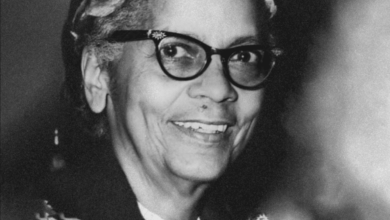Can You Fully Trust Your In-Home Caregiver?


You can’t be there all the time to take care of your loved one. Between work and the needs of an elderly person, being a direct caregiver can stress you out with its demands. Having a granny—whether that is your mom, your grandma, your auntie, or anyone else close to you who needs care—live with you may have seemed like the best place as opposed to uprooting them from a known home to going to a nursing home. Your granny cared for you when you needed it; this is just repaying their sacrifice and showing your love. Being responsible for someone’s care comes with demands and expectations, however.
You did the grunt work it takes to find someone to help you. You checked out home health agencies that specialized in care for those who also need a little extra help. You interviewed as many of the prospective caregivers as could be sent over. After you had made your decision of which home health caregiver you could trust with your granny and had the caregiver perform domestic and medical duties as needed, you took comfort in knowing that this person had been screened and background checked, was experienced, and even bonded by their agency. Their references were many and stellar. You needed the caregiver to work out for your peace of mind and your granny’s benefit.
Initially, things were good. Granny and the caregiver got along well. The caregiver performed their duties satisfactorily, and even exceeded your expectations. Granny was happy and safe. You felt like you could breathe a sigh of relief and trust, not worry. But before you can exhale and fully trust, you need to set up some parameters and continue to be vigilant whether you’re at the beginning of the process or it’s after you have already hired someone and you have concerns.
RELATED: Need To Step In? Here’s What To Expect Taking On The Family Caregiver Role
1. Know what you are looking for
Don’t skimp on the thoroughness of the screening process. Criminal history, state certifications, work history, credit history, and even drug and alcohol tests can provide more objective standards to measure the caregiver with. The home health agency should do this, but if their checks are not detailed enough for you, ask for more or choose a more thorough agency. You must feel comfortable with the caregiver and if any red flags come up at the beginning, then you can pass on a prospective caregiver in favor of another before it’s too late and a bond is formed, or an issue arises that could have been avoided.
2. References
Anyone can put down the names of people as reference checks; it is up to you to check them out. Make sure in addition to professional references from supervisors and managers that you get personal references. Ask them to list people who can vouch for their character. The personal references should paint a more complete picture of what the person is like outside of the caregiving role. Ideally, their personal references should demonstrate their integrity.
Last, but certainly not least, ask for references from families they worked for and contact them. You want a unanimous thumbs up without reservation from everyone you follow up with. Trust your gut if any questions, concerns, or red flags go up. It’s hard to fake integrity. This is one situation where due diligence should not be compromised.
3. Is it a good fit?
Schedule an in-person meeting to see if the caregiver and your granny get along together. Personalities can click or clash. Have a trial run, a day or shift when the caregiver and your granny spend a (paid) day together while you observe. This is one of the best ways to see what you’re getting and who you’re hiring. Get feedback from your granny alone after the person has left. Before you make a definite and final choice, schedule a time when you can meet and speak with the caregiver you want to hire about your needs and your granny’s specific care.
4. Don’t be sold by flashy marketing
The agency might have all the fancy, shiny brochures, with scenes of kindness and images full of smiles, but if the caregiver they send to you has a negative attitude, is lazy, and has a bad personality, then the marketing means nothing. The agency should provide a caregiver who allows you to take comfort in the care they provide. You should have the confidence you need before you fully trust them with your granny, your precious loved one.
RELATED: How To Balance Your Loved One’s Needs With Your Own
5. Clear expectations, not lowered ones
You set the tone for how the relationship will work with the caregiver, your granny, and you. Set clear expectations with the caregiver and your granny and meet with each regularly to check in and note where you may want to make any changes. It’s important to keep the lines of communication open among everyone involved.
6. Surprise visits
Right at that time when all three of you are growing comfortable with each other is not the time to slack off checking up on your granny when the caregiver is around. Make surprise visits and vary the times you check on how things are going and never stop. The goal is to confirm positive performance, not catch the caregiver in any negatives or neglect. But if the latter is what you find, be prepared to handle that too.
7. If you suspect…
If, based on a random visit or after the caregiver leaves, you suspect something is wrong and they may be hurting your granny, act immediately. Asking your granny about the caregiver may be challenging. It may take some time to get granny to speak up about any hurt or harm, so reading body language and noting changes in granny’s tone, demeanor, and eye contact are key. Try to get a sense of what granny may not say. Making a point to meet with the caregiver routinely is good, but speaking up right away is necessary to discuss any concerns you may have. Remember, you are not paying them to like you, but to perform a contractual service and do so with care, kindness, and competence.
Signs of abuse and neglect can range in type and degree. Follow your gut if things seem different with your granny. Neglect can be “ignoring physical, emotional, or social needs, or withholding food, medications, or access to health care.” Where caregiver neglect is defined by a lack of response to your loved one’s needs, the biggest sign of abuse to your loved one is change. A sudden change to your granny’s “physical, mental, or financial condition” is the ultimate sign something is wrong. Mental, emotional, or financial abuse is just as intolerable and harmful as physical abuse and neglect.
Don’t be afraid to use the chain of command at the agency to request another caregiver. If the situation is truly egregious, fire the agency and choose a different one. You may even report the caregiver to the state office that licensed them. Additionally, you can report the agency to the Better Business Bureau, and (anonymously, if you choose) the caregiver to the Adult Protective Service Agency.




